DESERT WILDLIFE
“Everything that survives in the desert either stings, pokes, bites or eats meat”
Preditors
Coyote
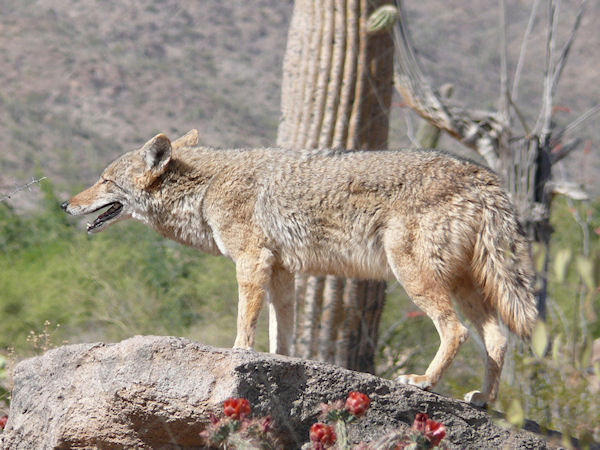
The howl of the Coyote is a symbol of the old west. He is cunning, sly and intelligent.
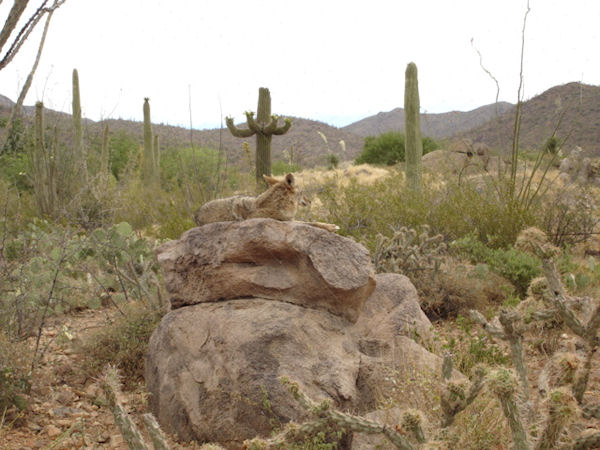
The Coyote is an important check on natures scheme of things, preying on weak or deseased creatures.
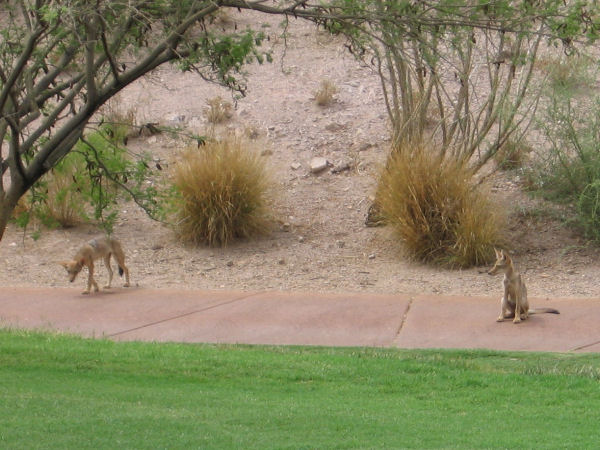
Two young coyotes watch as I play the 15th hole at Red Mountain Ranch
Bobcat
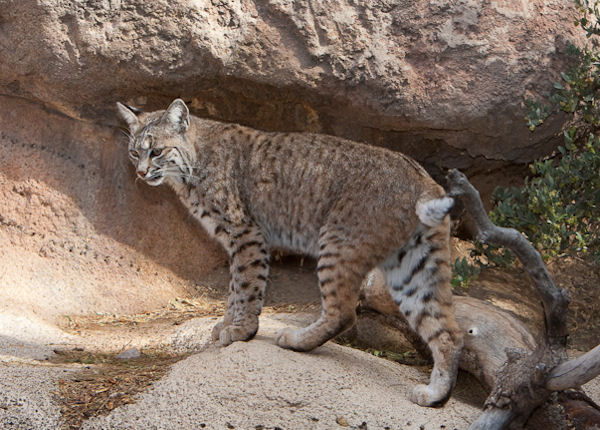
The Bobcat does most of his hunting at night, looking for rodents and rabbits
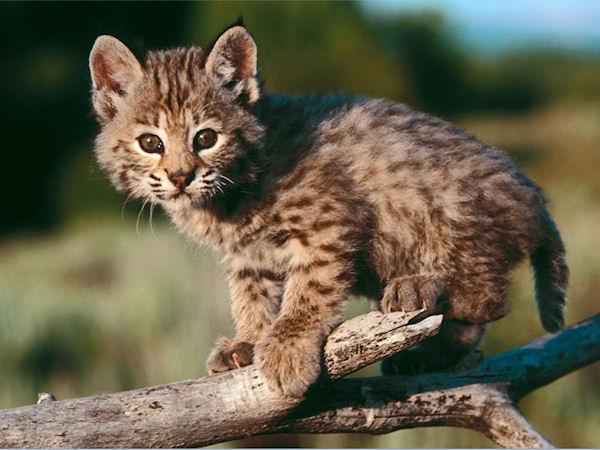
A baby Bobcat. So cute!
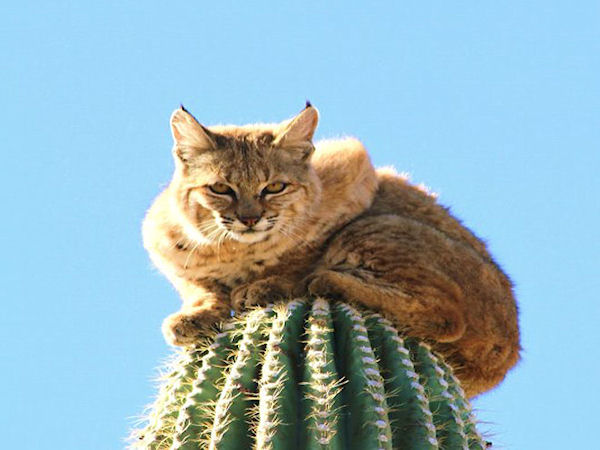
A bobcat perched on a Saquaro Cactus
Mountain Lion
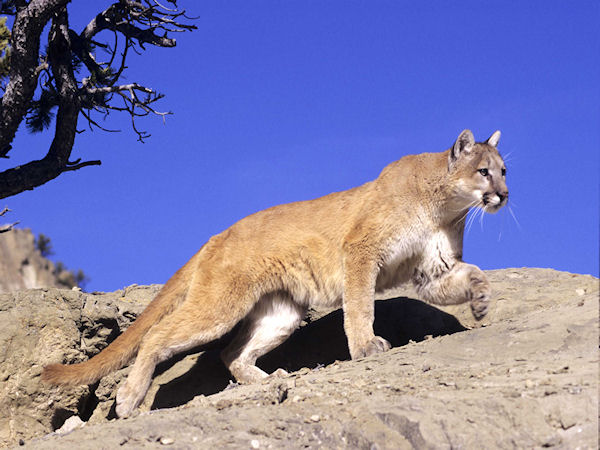
The Mountain Lion (Puma or Cougar) can weigh up to 200 pounds. It stalks its prey and can leap a distance of 20 feet or more. Man is his worst enemy
Hoofed Animals
The Salt River Wild Horses
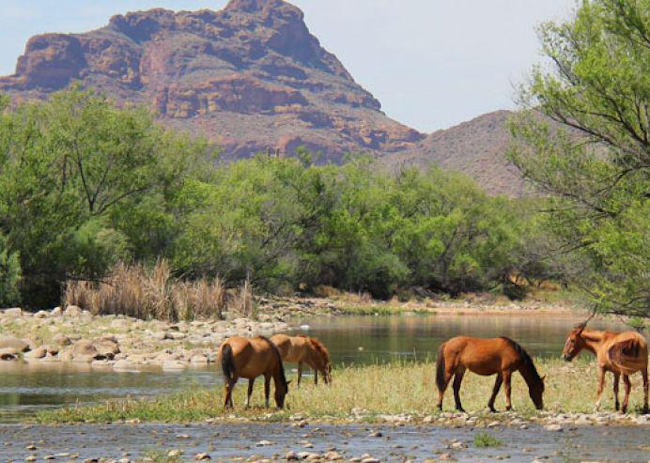
Horses
The Salt River horses roam the lower Salt River in the Tonto National Forest in Mesa, Arizona.
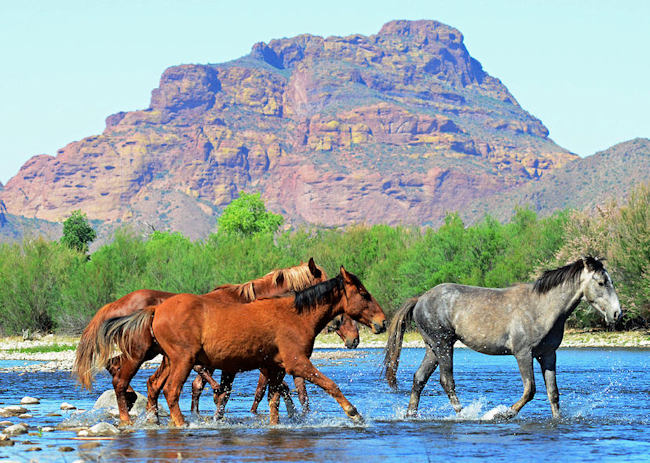
The Salt River Horses are the pride of Mesa, a symbol of the free spirit of Arizona and the American West.
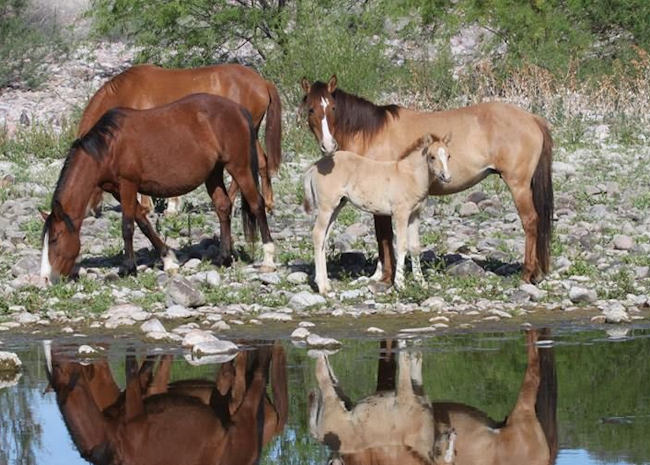
These historic and majestic creatures are a favorite subject of photographers and the icon of the wild west.
Javelina
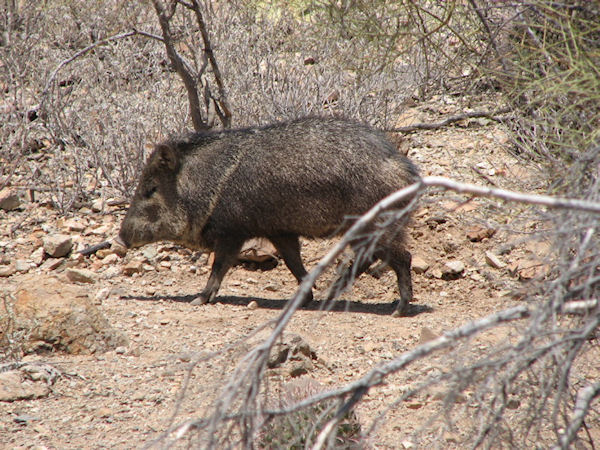
The Javelina (Pronounced Have-ah-leena) is the only native pig-like animal in America. However, it is not a true pig.
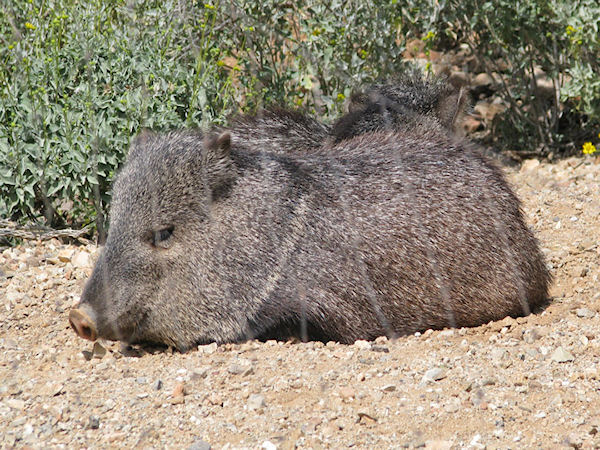
The Javelina has black and gray bristles, tusks and a snout for rooting out insects. It eats the fruits and pads of the prickly pear cactus and also lizards and snakes.
Mountain Sheep
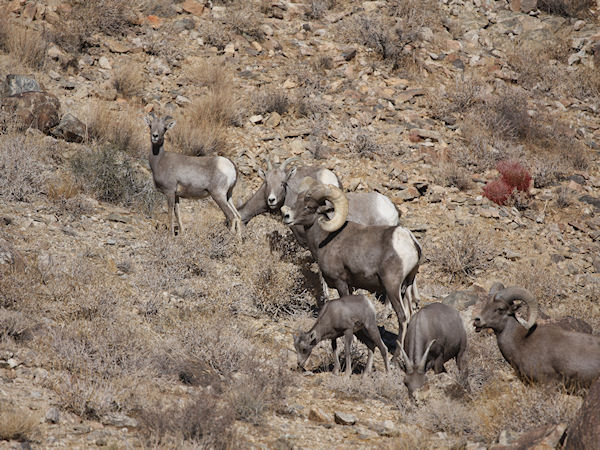
Mountain Sheep live in the desert mountain areas. Their concave hoofs make for sure footing on rocky terrain where it is difficult for prediators to follow
Birds
Road Runner
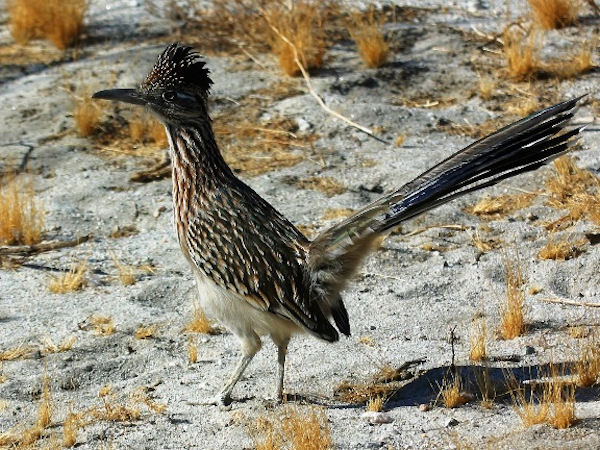
The Road Runner is a majestic bird with their crown and long tail. They are fast enough to make a diet of lizards and snakes.
Gambel Quail
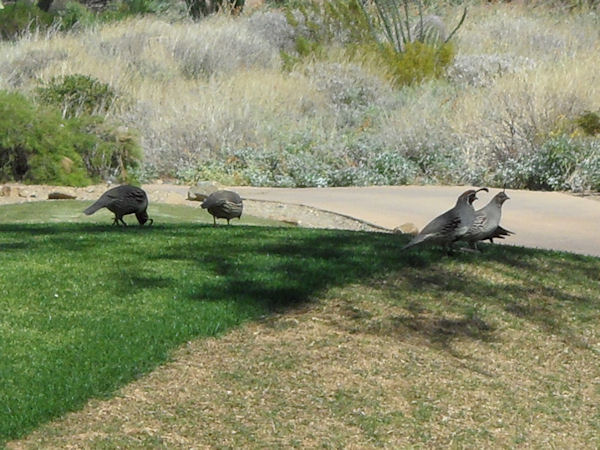
Quail are very common in the desert and both male and female are plumed
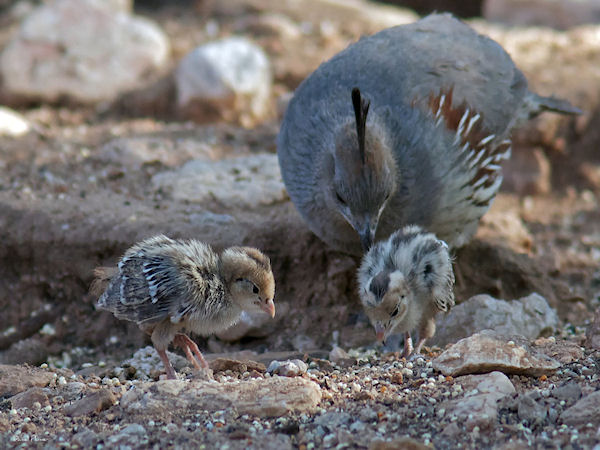
Quail chicks can run as soon as they are hatched. They resemble tiny dust bunnies with legs as they scurry to find shade.
Mourning Dove
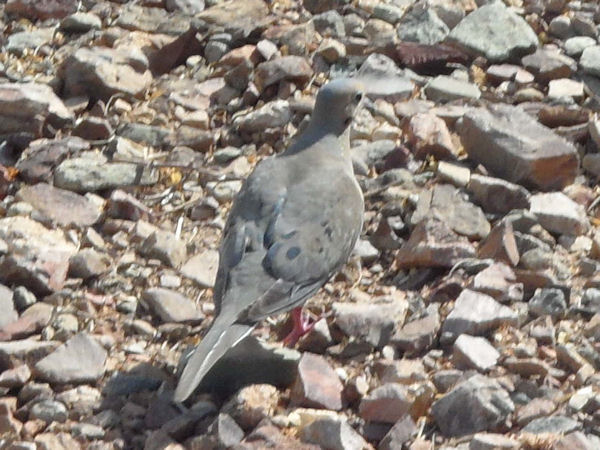
Doves are a common native distinguished by a mournful cooing sound. They must have water every day and sometimes fly great distances to find it.
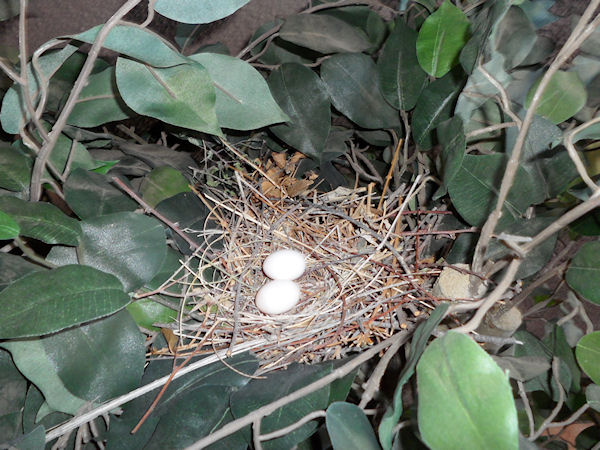
Doves and pigeons feed their young a milky liquid called pigeons milk formed in the parent's crop. (This nest is in the artificial tree on our porch.)
Other Birds
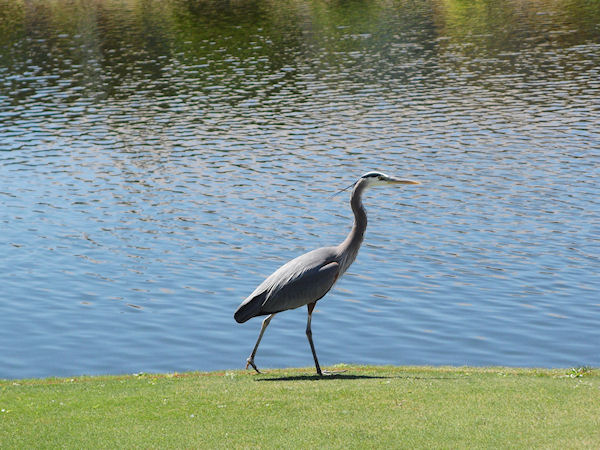
The Blue Egret graces many lakes and ponds

The Snow-white Egret graces many lakes and ponds
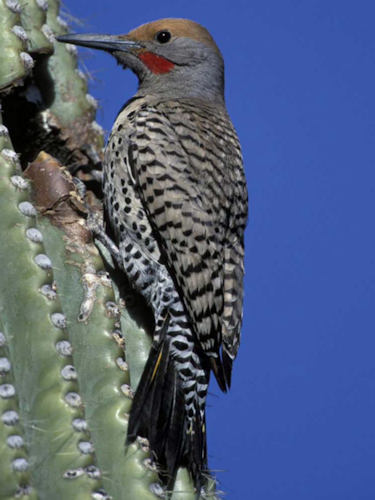
The Woodpecker
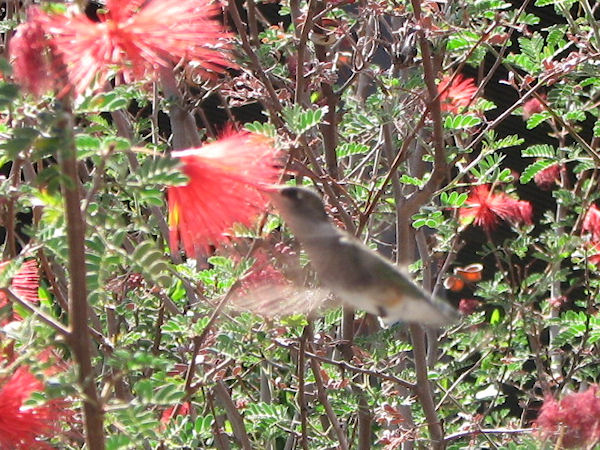
Hummingbirds are plentiful and love our desert flowers
Birds of Prey
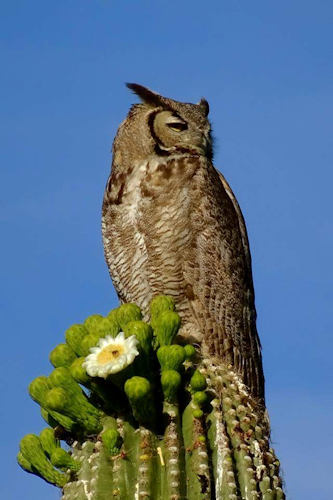
The Owl
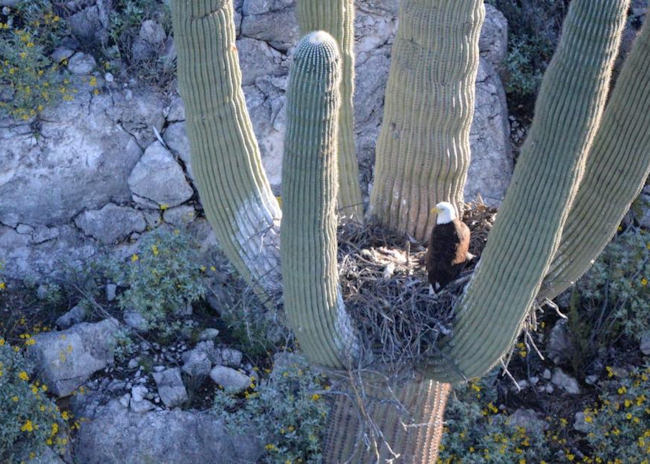
The Bald Eagle
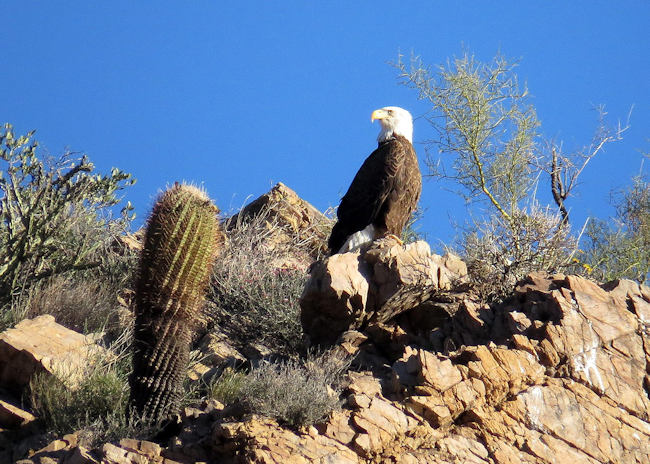
Bald Eagle
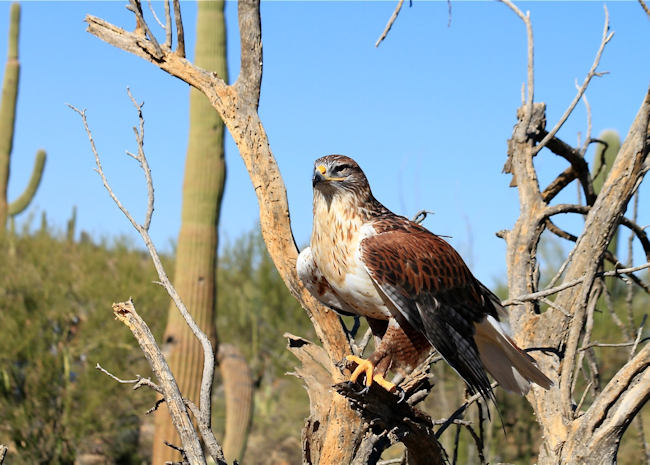
The Hawk
Critters
Rabbits
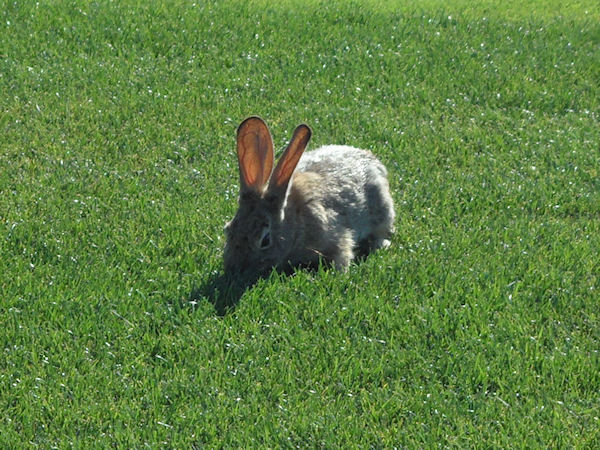
The Desert Cottontail spends his life in peril. Almost every carnivore preys on him.
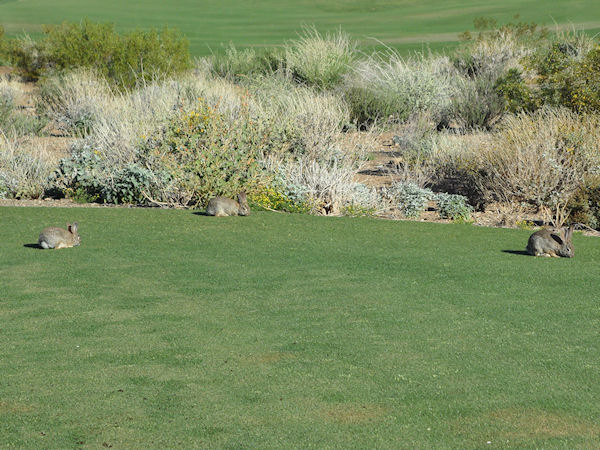
A Desert Cottontail has no defense except to dash into the nearest clump of thorns where the predator cannot follow.
Round-tail Squirrels
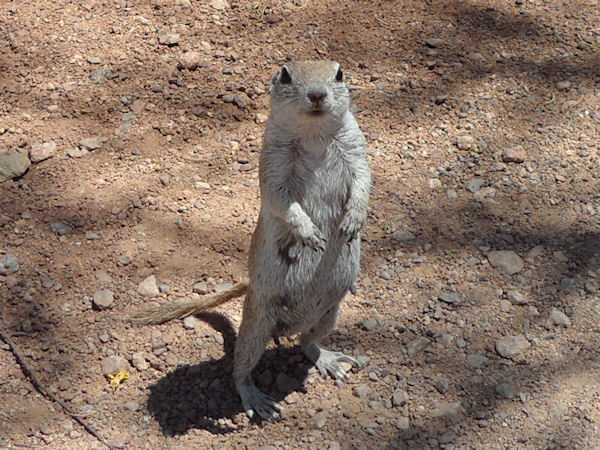
These Squirrels remain very active in the hottest weather They eat seeds, fruits and insects.
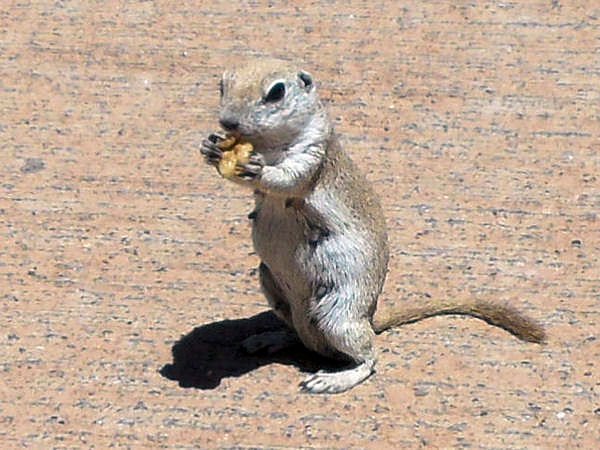
The Squirrels often beg food from the golfers. Joan & I gave this one a walnut.
Lizards & Spiders
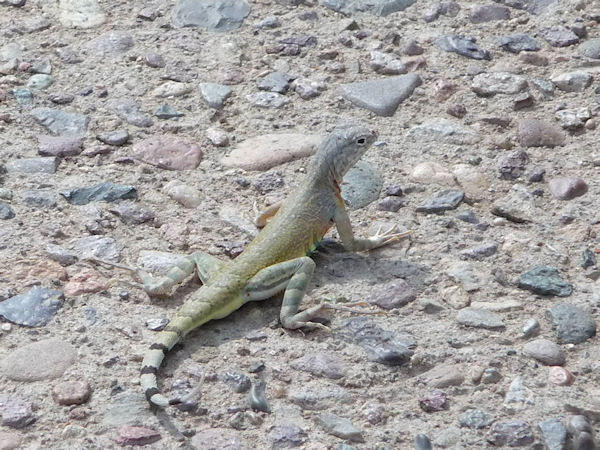
Zebra-tailed Lizards are food for Road Runners, snakes and tarantulas.
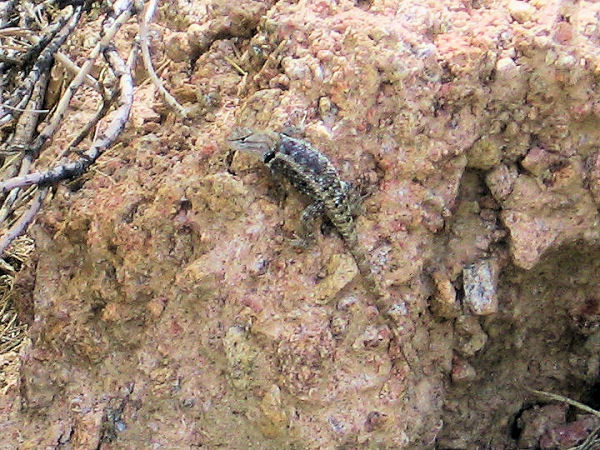
Zebra-tailed Lizards are adapted for running at great speeds and can grow another tail if it loses his to a preditor.
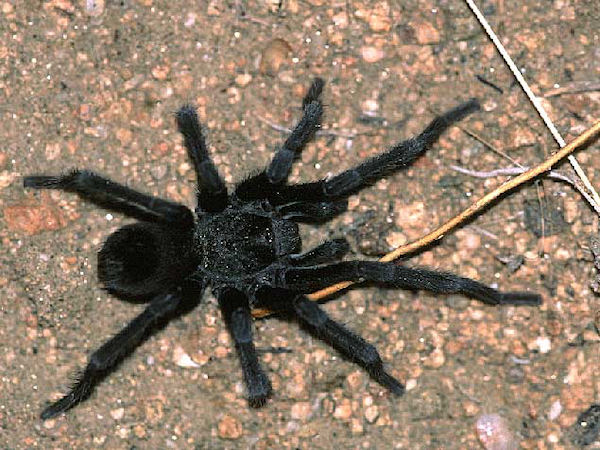
Tarantulas are the largest of American spiders. Their bite is painful but not serious and they only bite if annoyed. They are beneficial as they eat many insects during their nighttime prowling.
Scorpions & Snakes
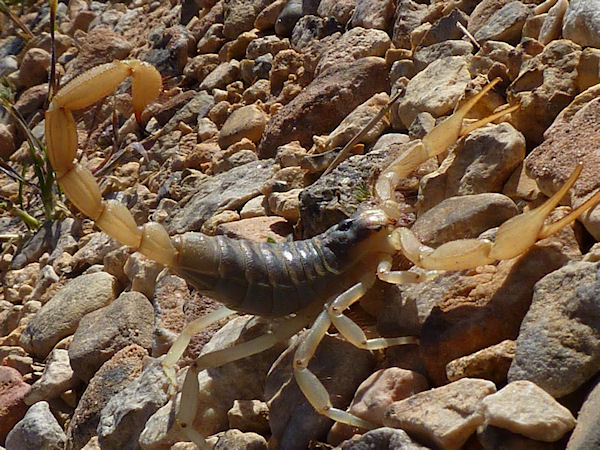
Scorpions can be dangerous but the sting is not worse than that of a bee, although many people suffer alergic reactions.
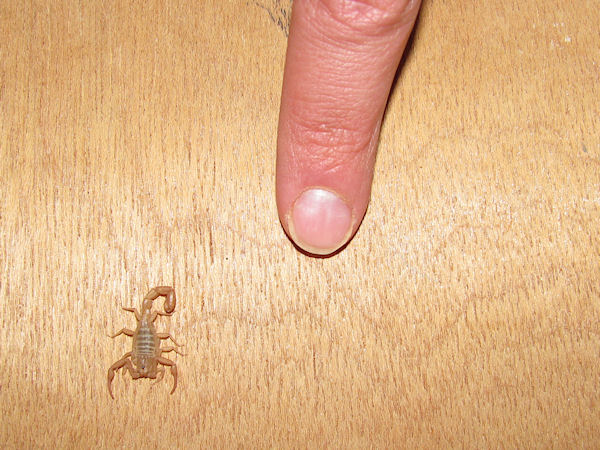
Most of the scorpions we see are about this size
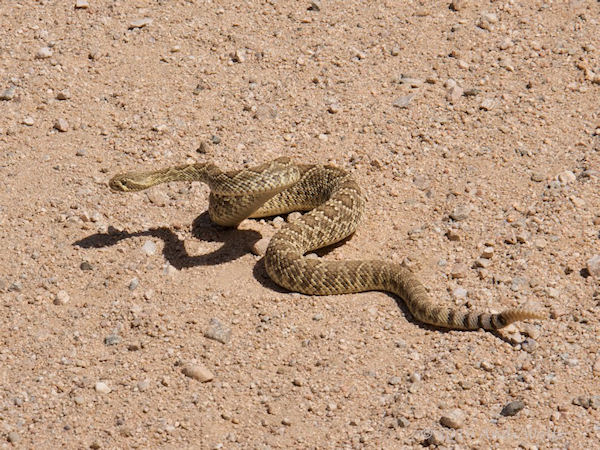
The Diamondback is the largest rattlesnake in the Sonoran Desert. It does not have to coil to stike and does not always rattle a warning.
©Copyright 2000
All rights reserved. No part of this publication may be reproduced,
stored, or transmitted in any form without my prior permission. Charles Tyrrell, Webmaster
stored, or transmitted in any form without my prior permission. Charles Tyrrell, Webmaster